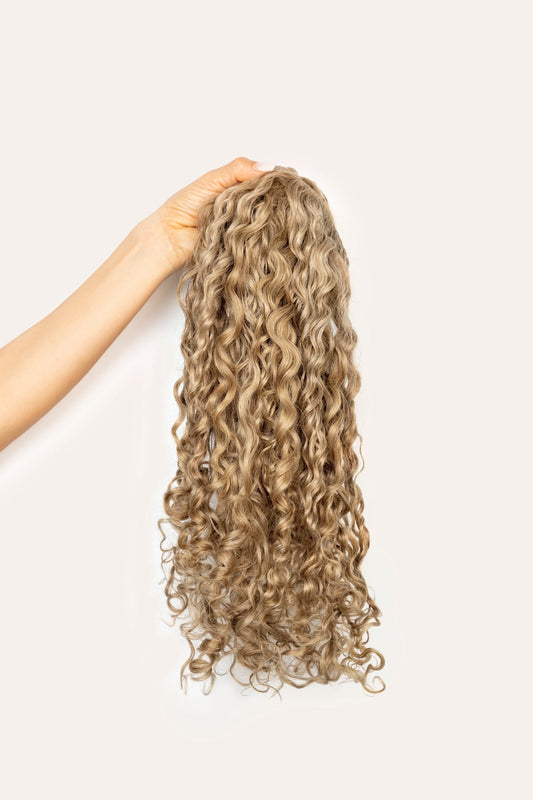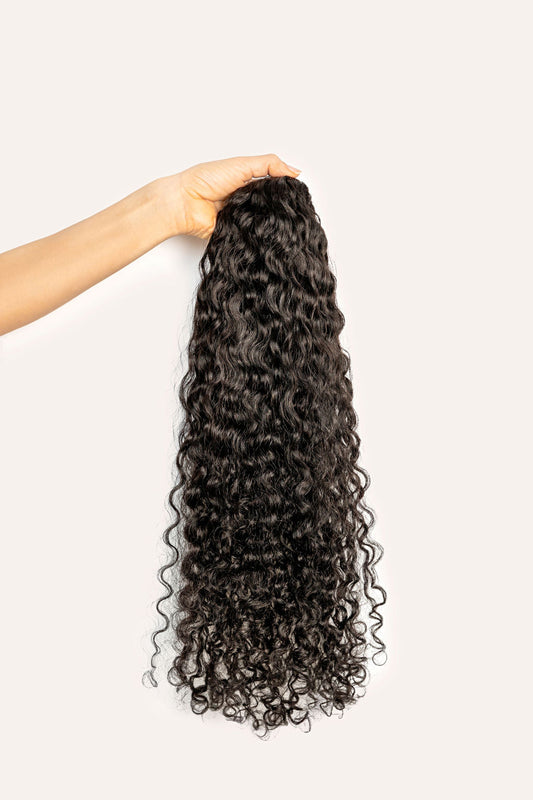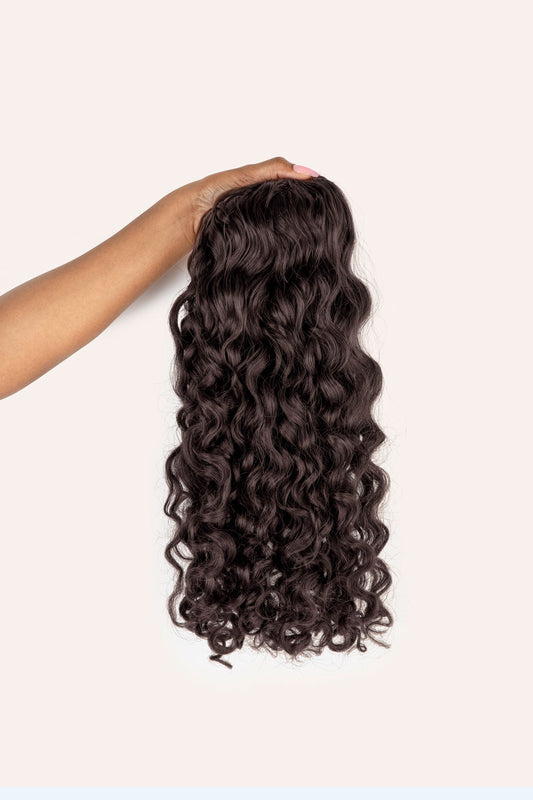Did you know that August is Hair Loss Awareness Month? At Bebonia, we’re dedicated to all things hair-related. Whether it be helping you create eye-catching curly hairstyles or recommending our favorite products, we want to help you live your very best curly life.
Hair loss (also called alopecia) is something that isn’t often talked about, but it’s actually incredibly common. According to The Hair Society, approximately 21 million women and 35 men experience hair loss. There are many factors that influence hair loss, including hormones, genes, and many others. In this blog, we’ll talk about some of the more common causes of, and solutions for, hair loss.

What Causes Hair Loss?
While everyday hair loss is common (the average adult loses up to 100 hairs per day), some people experience excessive hair loss. Signs and symptoms of hair loss can include a gradual thinning on top of the head, circular or patchy bald spots, or suddenly loosening of hair. Excessive hair loss can be temporary or permanent, and common reasons for hair loss include:
Hormones
Ah, hormones! They impact us in so many ways, including our hair health. Abnormal levels of androgens (the male hormones normally produced in box sexes) can lead to hair loss. Hormone changes due to pregnancy, childbirth, or menopause can also result in temporary loss of hair. Changes in thyroid function can also lead to losing hair.
Genetics
The most common cause of hair loss is genetics. (Thanks, mom and dad!) Hereditary hair loss is also called androgenic alopecia—male-pattern baldness and female-pattern baldness.
Stress or Illness
Experiencing a stressful event or being sick can also cause hair loss. Many people have reported a noticeable increase in hair loss after a COVID-19 infection. The good news is that this type of hair loss is almost always temporary and will stop once stress levels go down or you start to recover from your illness.
Drugs
The drugs in chemotherapy treatments, blood thinners, blood pressure-controlling beta-adrenergic blockers, and birth control pills can all cause temporary hair loss.
Autoimmune Diseases and Medical Conditions
Autoimmune disease may cause alopecia areata. With this condition, the immune system amps up for unknown reasons and affects the hair follicles. Most people with alopecia areata will grow their hair back, but it often comes back finer and possibly lighter for a short period of time before regaining normal color or thickness.
There are many other medical conditions that can cause hair loss, including thyroid disease, lupus, diabetes, iron deficiency anemia, and eating disorders.
Cosmetic Procedures
Sometimes, the very things we do to look our best can actually take a toll on our hair. Things like too much washing, perms, bleaching, and dyeing hair can cause hair thinning and hair loss. Other things like tight braiding and using heat styling tools too often can cause thin, damaged hair. None of these things cause baldness—most of the time, hair grows back normally if the damaging behavior is discontinued.

Hair Loss Prevention
The good news is that hair loss that is not caused by genetics is almost always preventable and treatable.
Being gentle with your hair is a MUST—especially for curly babes. When brushing and combing, use a detangler and a wide tooth comb. Start from the bottom of your hair to work through any knots. Avoid harsh treatments like curling irons, hot rollers, bleaching, and other cosmetic procedures that can damage your hair. Try to limit the amount of tension you put on your hair (i.e. rubber bands, braids, etc.).
You can ask your doctor about taking hair health supplements, and protecting your hair from sunlight and other sources of UV light is always a good idea.

Hair Loss Solutions
There are treatments available for some types of hair loss, including medications, laser therapy, and in more extreme cases, hair transplant surgery.
Since many types of hair loss are temporary, most people choose to treat their hair loss at home. You can use styling products that help add volume, you can color your hair, or you can talk with a hairstylist to create a style that helps make a widening part less noticeable or otherwise works with where you’re losing hair.
At Bebonia, we see a lot of people use our curly clip-in hair extensions to help hide hair loss. Whether you’re regrowing your hair due to damage or adding length and volume to thinning hair, our curly extensions are perfect! They’re temporary, non-damaging, and can help you feel more confident. Our curly extensions come in a variety of colors and textures—we also have curly drawstring ponytails.
If you aren’t sure which curly clip-in hair extension is right for you, we can help! Our team of experts can help match you to the perfect fit.




